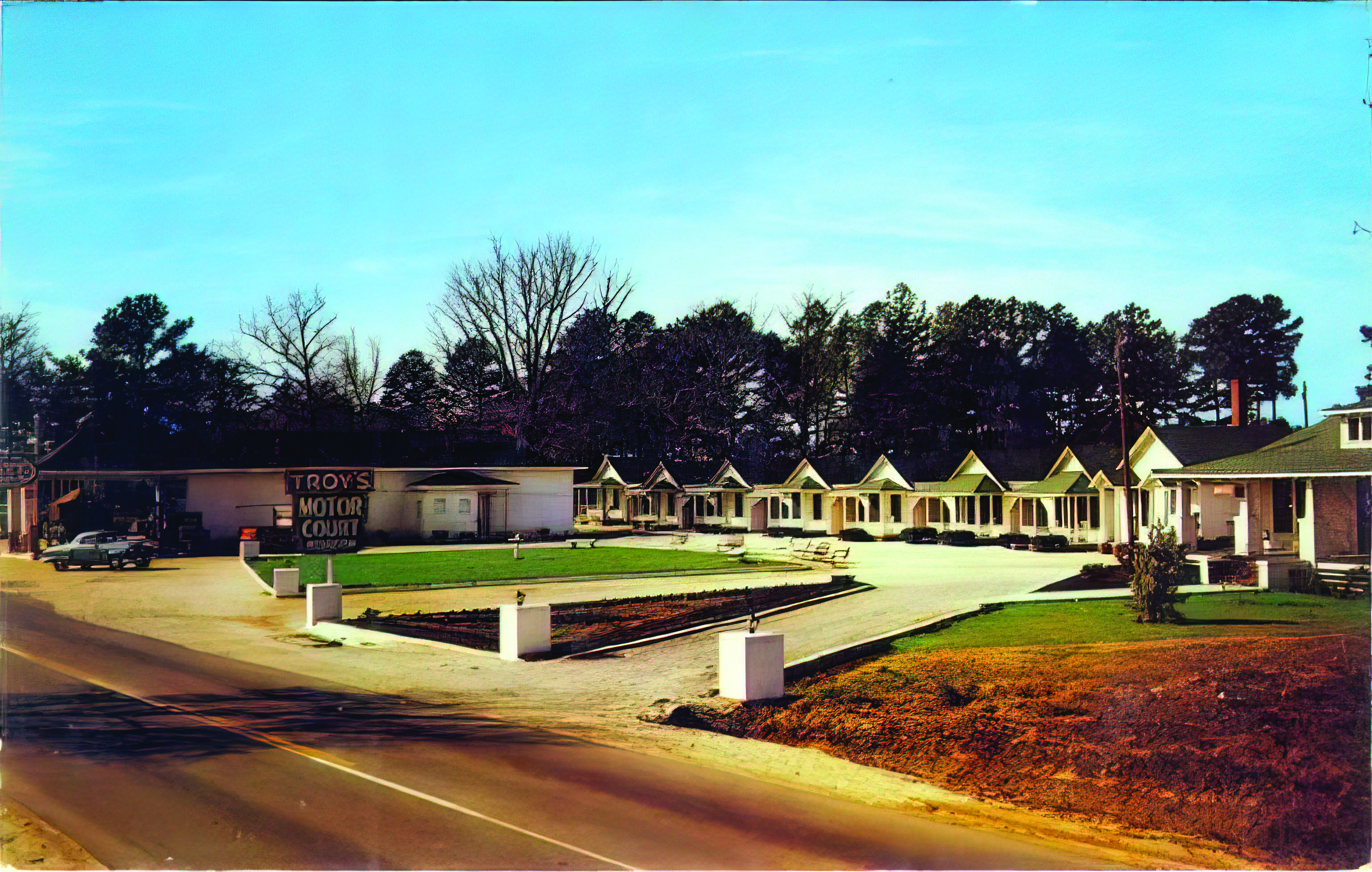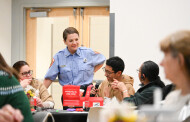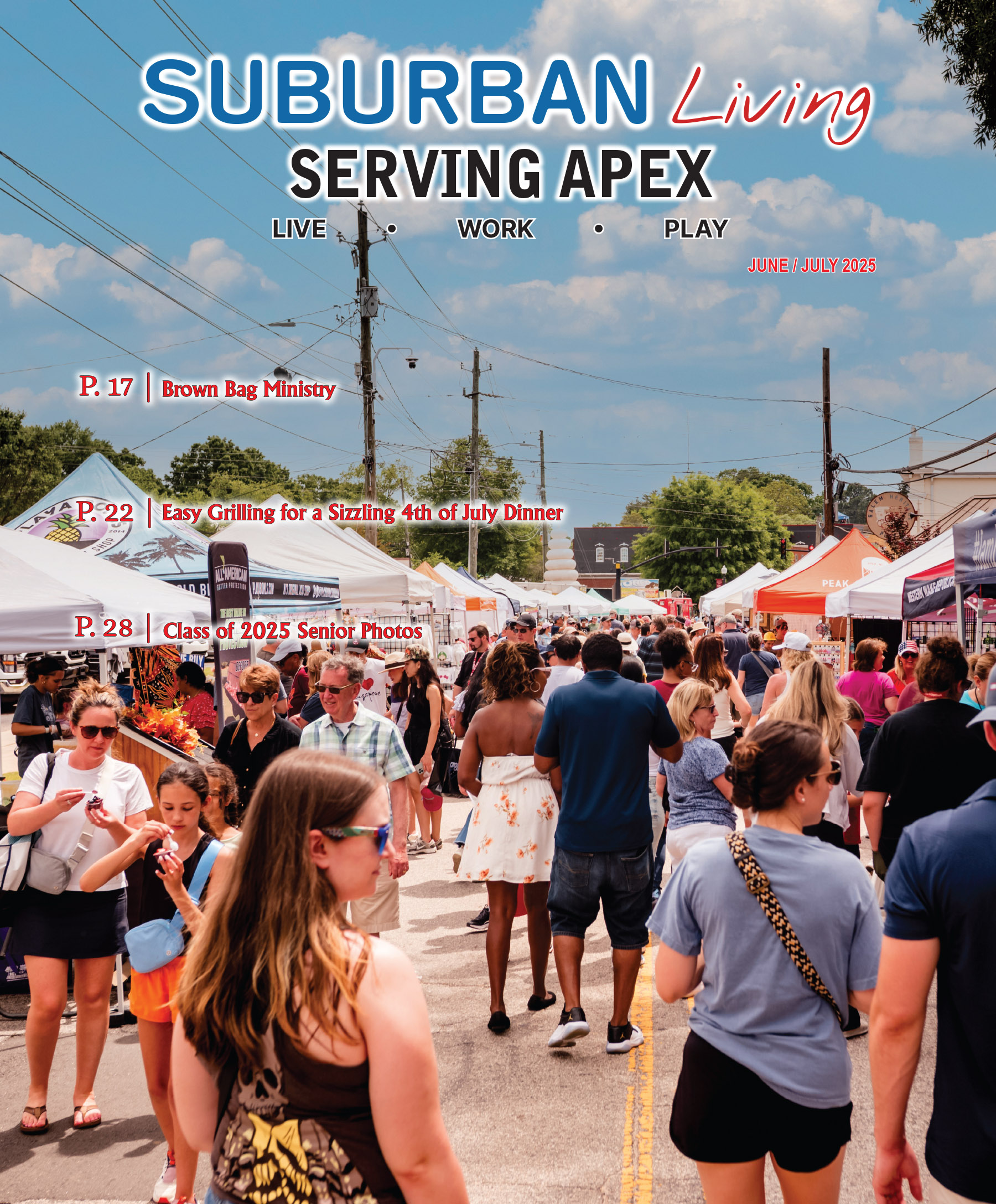At the junction of New Hill-Olive Chapel Road and Old US 1 lies another piece of local history. While Troy’s Motor Court and Tea Room is no longer welcoming guests, the fuel and the food and the lodging it provided to the weary traveler from the 1930s all the way up through the 1960s was invaluable. The story behind this historic motor court and tea room, like so much of the history around us, is fascinating.
I spoke to Steve Roundy who is the grandson of the original owner, William Troy Roundy.
Roundy’s grandfather fought in World War I and upon his return—after having seen some of the world—he decided he didn’t want to be a farmer. His first foray into not being a farmer happened sometime in the mid- to late-1920s when he opened the Farmers’ Supply Store, which apart from selling groceries, plows, overalls, boots and other farmer-centric merchandise, had gas pumps, too.
It was the Great Depression and desperate times called for desperate measures. Store hours were set from 5 a.m. to 10 p.m. The business grew and expanded beyond local farmers’ needs since it faced one of the most traveled north/south thoroughfares in the US (incidentally, I-95 was years away); customers asked if there was any place to get a bite to eat. Steve’s grandfather told the eager clientele, “Not yet,” but he had a plan.
It didn’t take long for Troy’s Tea Room to open. Roundy noted that Ursula (his grandmother) was an outstanding cook. There were maybe five tables, a counter and a kitchen. He recalls her words of wisdom, that “it’s not what you do but how you do it.” Among the array of fine southern home cooking she served were fresh baked biscuits, collard greens and quail.
“I can see her putting a fresh biscuit in the oven with pats of butter atop each half, the butter melting slowly and then, once removed, she would top it with a dollop of homemade watermelon rind preserves or strawberry preserves,” Roundy reminisced.
Before I could say what I was thinking, Roundy summarized Troy’s Tea Room most succinctly, calling it one of the earliest farm-to-table restaurants in southwestern Wake County.
It didn’t take long for these well-sated customers to ask if there were any places nearby to spend the night. Once again, Roundy’s grandfather responded in kind, “Not yet.” And, he had another plan.
About five or six months later, the motor court opened. Roundy pointed out how commonplace it was during this time, citing Route 66 as an example, to have a grocery store/gas station, cafe and motor court side by side.
To manage the ever-growing workload, his grandparents pared back to serving two meals per day. In addition, they hired Raleigh Linen Service to exchange and wash the bed linens. Roundy recalled their daily visits fondly noting that the “smell of starch emanating from the back of their red box truck was intoxicating.”
It didn’t take long for his grandfather to advertise their well-established business with a billboard erected about a mile northeast of the property, its simple message to travelers urging them to “Stay at Troy’s Court.” Roundy noted that this was the first motor court south of Henderson, with nothing else between them and the South Carolina line.
At the motor court, there were eleven cottages. Some were doubles (for families) with an adjoining room. Some had garages. They all had beds and bathrooms and were equipped with heat and air conditioning. Roundy remembered his childhood involvement in the business. His grandparents’ home doubled as the main lobby.
“I would be at their house on a Friday night and Milton Berle or ‘I Love Lucy’ would be on TV and someone would knock on the door. They were heading from New Jersey to Florida and were looking for a room. A green guest ledger sat on their little countertop. I think you had to sign in by law. The guest would be given the key and would head to their room. My grandmother then would give me a tray that included a pitcher (like the old Kool-Aid pitcher with condensation on the sides) with iced water, two Dixie cups, two postcards and two cakes of Ivory soap. She told me to take this tray to cabin #5 and tell them ‘this is water from a deep well.’ The guests would thank me and I’d head back to the house,” he recalled.
As you might imagine, the motor court had its share of interesting guests. Included among them was William “Bill” Tilden, a Hall of Fame tennis player. Tilden ate at the Tea Room but, more importantly, he signed a tennis ball for Roundy’s father, W.T. Roundy, who was a kid at the time.
The Sultan of Swat himself, Babe Ruth, stopped at the Tea Room on his way to spring training one year. Like Tilden, he didn’t stay over but enjoyed a southern meal with his wife. Roundy shared that Ruth ate two quails, a whole pan of biscuits and most of a pie. Ruth’s appetite, like his girth and homerun prowess, was enormous.
Lastly, and though never confirmed, there is good reason to believe that the notorious bank robbers, Bonnie and Clyde, were discreet guests at the motor court. Roundy shared how Clyde had an interest in seeing how cigarettes were made. There is speculation that while on the lam from the law, they swung by the Camel cigarette factory in Durham and then, as they headed south, stopped at the motor court. To further support this story, Roundy told the story his grandmother shared—of two couples that arrived in a single sedan and parked behind the motor court (i.e., out of sight). She never saw so many guns packed into the back of a car. Only the women came out to talk. No one will ever really know, but the possibility is intriguing.
For a while, Roundy’s grandmother ran the cafe and the tourist court while his father (who returned from World War II in 1945) ran the store. However, the tea room was gone by the mid-1940s, torn down to use the lumber to build his aunt’s home across the adjacent intersection. As a sort of homage to the tea room, in the mid-1960s, they added Troy’s Grill to the Farmers’ Supply Store. It operated as an outdoor take-out restaurant with two prominent windows up front to place and pick up orders. It was very popular.
Roundy’s grandmother continued to run the motor court until the mid-1960s, which is when Roundy’s grandfather fell ill. He passed away in 1965 and she ran it by herself until 1967 at which point she transitioned it to be more like apartments with permanent residents. It remained like this until 1988 when Roundy’s grandmother passed away. This signaled the end of the motor court. Roundy noted that Troy’s Grill stopped conducting business well before the motor court shut down.
Today, if you drive along this stretch of old US-1 near the New Hill-Olive Chapel Road intersection, you can see the remaining motor court buildings from the road. Roundy’s father could not bring himself to bulldoze them away. With new roofs and a fresh coat of paint, they have curb appeal but are no longer livable. Roundy’s sister, Loretta, is the owner.
The vestiges of Troy’s Motor Court and Tea Room can be seen from the road, long since closed for business. And while there is no longer any room at this inn, I’m fairly certain that the aroma of Ursula’s fresh baked biscuits lingers, ever so slightly, in the fresh country air outside. History, like those intoxicating aromas, is inescapable.








